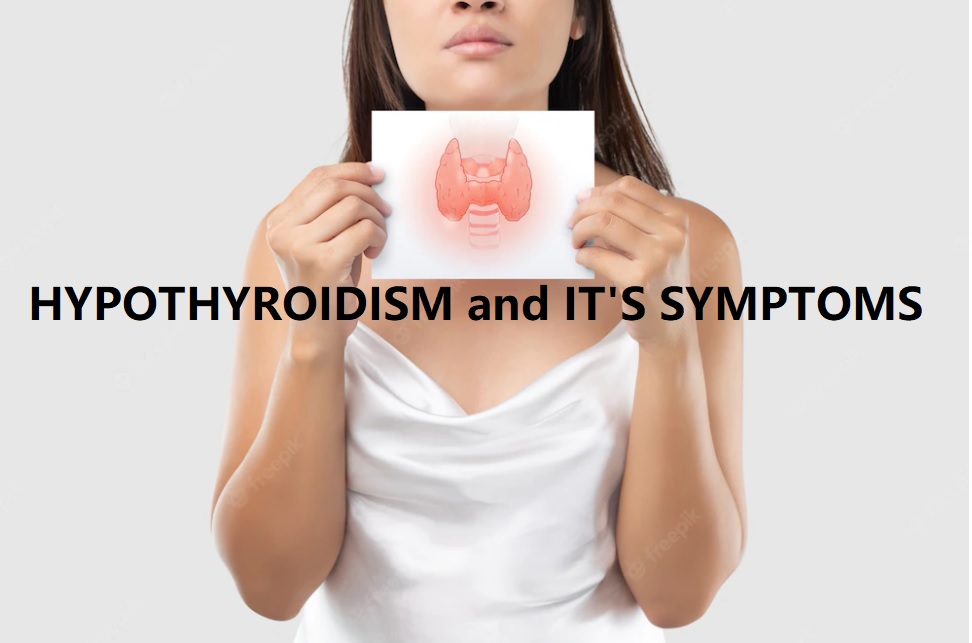INTRODUCTION:-
The thyroid gland is a gland of the endocrine family that looks like a butterfly in shape and sits right in front of the throat.
This gland pours a specific amount of thyroid hormone into the bloodstream as per the body’s requirement.
Now, these hormones, along with the other hormones released by the rest of the endocrine glands, work in a cyclic and interactive manner to keep up with the body’s functioning, which is, right from the digestion of the food we eat to our mood swings and even sleep is controlled by these hormones.
Therefore, any sort of problem in the thyroid gland will obviously alter the proportion of thyroid hormones released. By alter, I mean it can either produce more (hyperthyroidism) or less (hypothyroidism) than the optimum amount.
And as a result of this fluctuation, the entire cyclic function of the endocrine system is disrupted, which is definitely not a good sign as it would largely affect the body’s metabolism and energy production.
Out of the two types, one of the most common types of thyroid is HYPOTHYROIDISM (a decrease in thyroid hormones).
Every cell of the thyroid gland produces thyroid hormone.
Thus, any damage to the thyroid cells will automatically decrease the number of thyroid hormones produced, which leads to hypothyroidism.
CAUSES OF HYPOTHYROIDISM:-
Hashimoto’s thyroiditis:-
It is an autoimmune disease where the body’s immune system recognizes its own thyroid cells as rivals and attacks them, thus causing damage to the thyroid gland. Or in severe cases, the entire thyroid gland is surgically removed. In such cases, it causes decreased production of thyroid hormone.
Radioactive treatment:-
If a person was previously suffering from hyperthyroidism and happened to go for radioactive medication. Here, the radioactive waves hit the thyroid cells to damage them and reduce excess production. But, to the contrary, the irreversible damage of cells can reduce the production of thyroid hormone for a lifetime. Eg: radiotherapy for cancer patients.
SIGNS AND SYMPTOMS OF HYPOTHYROIDISM:-
1. TIREDNESS:-

One of the major functions of the thyroid gland is to initiate body metabolism, where it makes use of the food that we eat and converts it into energy in the form of ATP by various metabolic pathways. And this energy is the one that we use for daily activities, right from lifting our hands, walking, jumping, dancing, and so on.
Therefore the decrease in thyroid hormones gradually arrests body metabolism; no metabolism means no energy (ATP), no energy means tiredness, and tiredness means a feeling of giddiness and sleepiness, which is why people with hypothyroidism tend to oversleep.
This indicates the onset of hypothyroidism in our bodies.
2. ABNORMAL AND UNUSUAL WEIGHT GAIN:-

Because the food we eat is only getting stored in our body but is not converted into useful energy, it makes our body tired, which in turn leads to excessive eating to keep up with the tiredness.
But little did we know that how much ever we eat, the food is NOT getting used to form energy, but instead, it starts getting accumulated in the liver, muscles, and fat tissues in the form of calories. This will eventually lead to abrupt and abnormal weight gain in spite of eating healthy proportional food. And simultaneously, the feeling of tiredness will not support the body to exercise, and this will also add to the weight gain reasons.
And, if a person is gaining weight, it need not necessarily be hypothyroidism as there are many other reasons like stress eating, eating junk food, other medical histories like PCOD (Polycystic Ovarian Disease), and so on to gain weight. Thus, one should check on all of this before confirming it to be hypothyroidism.
3. FEELING COLD IN NORMAL WEATHER CONDITIONS:-

Unusually feeling cold in normal weather is very common for thyroid patients.
This is because the various metabolic reactions taking part in the metabolic pathway of our system release some amount of heat along with the products that they form. Also, the thyroid hormone signals the heat regulation of brown fat.
And our body thus finds warmth in cold weather from such heat.
So, a patient with hypothyroidism and a lack of body metabolism will also have a lack of heat production in the body which in turn makes them more prone to cold weather.
4. WEAKNESS IN THE MUSCLES AND BONES:-

As a result of hypothyroidism, when body metabolism comes to a halt, and there is no energy in the body, our cells tend to draw energy from nearby muscles and bones.
This, in turn, diminishes the nutritional value and health of our bones and muscles, making them weak.
5. HAIRFALL:-

If not all the time, sometimes our hair fall can be one such symptom of hypothyroidism because apart from the metabolic activities of the thyroid hormone, it also plays a major role in regenerating or forming new stem cells on our hair follicle for hair growth.
These stem cells have a short lifespan which is why hair fall and regrowth occur throughout the year in an individual. But, during the sudden downfall of thyroid levels, hair regrowth is largely affected.
6. DRY AND ITCHY SKIN:-

Just like stem cells of hair, skin cells also shed and regenerate frequently throughout one’s life. Likely so; thyroid hormone helps in this mechanism too.
But for someone with hypothyroidism, the process of shedding the outermost dead skin cells and regeneration of the new ones slows down. Because of this, the dead skin cells get to accumulate on the skin’s surface, making it look flaky with an itching sensation.
Apart from this, hypothyroidism caused due to autoimmune disease also causes dry, itchy, red skin.
7. DEPRESSION:-

As stated so far, hypothyroidism largely affects our physical health as well as our physical appearance, because of which it synergically takes a toll on our mental health too. This leads to depression.
8. TROUBLE IN CONCENTRATING:-

Depression continues to link other mental instabilities like difficulty in concentrating on things, fogginess of memory, lack of ability to recall, and so on.
9. CONSTIPATION:-

A prolonged halt in metabolism and digestion of food causes mild to severe constipation, vomiting, and stomach pain.
10. IRREGULAR PERIODS:-

As mentioned earlier, the thyroid hormone interacts with the other hormones produced by the other endocrine glands for a systemic function.
One such interaction is with the steroid hormone progesterone and estrogen, which maintains the onset, flow, and offset of menstruation in women.
Thus, hypothyroidism affects this mechanism as well, causing irregular periods and heavy flow.
11. OTHER SYMPTOMS:-
Other common symptoms are fatigue, vomiting, nausea, and so on.
In spite of all the symptoms, hypothyroidism is a condition that can be easily cured and is pretty inexpensive.
THANK YOU
MEDICAL ADVICE DISCLAIMER:
This blog, including information, content, references, and opinions, is for informational purposes only.
The Author does not provide any medical advice on this platform.
Viewing, accessing, or reading this blog does not establish any doctor-patient relationship.
The information provided in this blog does not replace the services and opinions of a qualified medical professional who examines you and then prescribes medicines.
And if you have any questions of medical nature, please refer to your doctor or qualified medical personnel for evaluation and management at a clinic/hospital near you.
The content provided in this blog represents the Author’s own interpretation of research articles.
